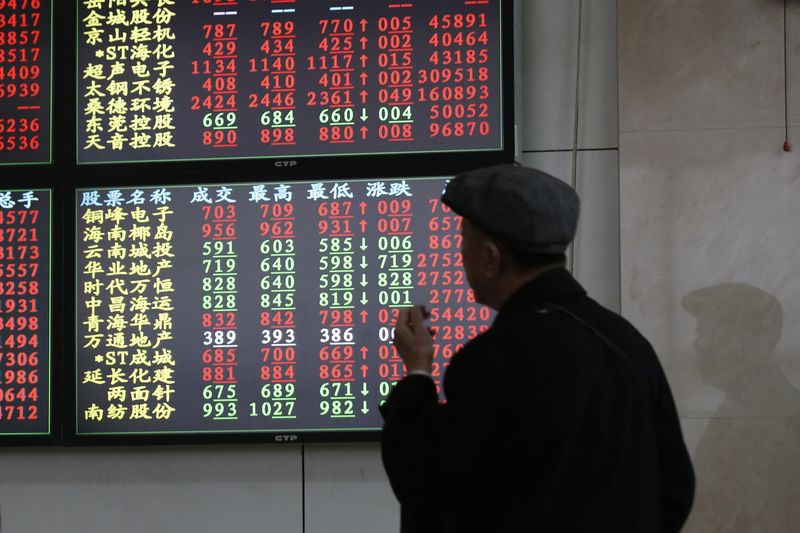Investing.com – Asian stocks took a cue from the major indices in the U.S. and turned negative on Tuesday morning, although the losses in Asia were generally subdued.
Overnight Monday, shares plunged in U.S. markets giving up early gains with markets reacting to the lack of details around any potential trade deal between the U.S. and China and the potential of any deal having limited impact on global growth.
Chinese shares took a breather on Tuesday morning.
The Shanghai Composite Index was down 0.36% by 9:25 AM ET (2:25 AM GMT) while the Shenzhen Component offered an exception to the downbeat performances by rising 0.53%. Chinese shares have enjoyed significant gains this year. The Shanghai Composite is up around 18% from the beginning of 2019 and Shenzhen is up about 25%.
In Hong Kong Tuesday morning, the Hang Seng Index was down 0.55% at mid-morning to 28,797.
Most other major stock markets around the region were also in the red.
Japan’s Nikkei 225 was down 0.62% to 21,676 and the Kospi in Korea was trading down 0.71% to 2,175. In Australia, the S&P/ASX 200 was down 0.37% to 6,196.
The losses on Tuesday marked a significant turn-around in the mood of investors who, on Monday, had powered indexes to substantial gains on expectations of a quick trade deal between China and the U.S. While those expectations remain, few details of any agreement have come to light.
At the same time, China’s National People’s Congress opened its annual meeting on Tuesday. Policy makers have lowered the target for economic growth in the country to between 6% and 6.5% for this year. The target “band” rather than a specific target gives regulators more room to maneuver.
“It’s good news for the market in the short term; bad news for China is the medium term as more leverage will need to be piled up,” Alicia Garcia Herrero, chief Asia-Pacific economist at Natixis SA, told Bloomberg.
Regulators also announced cuts to the value-added tax (VAT), including a 3% to the top bracket, in a move that could help support manufacturing. The tax could add up to as much as CNY800 billion, according to figures from Morgan Stanley (NYSE:MS) quoted by Bloomberg.
